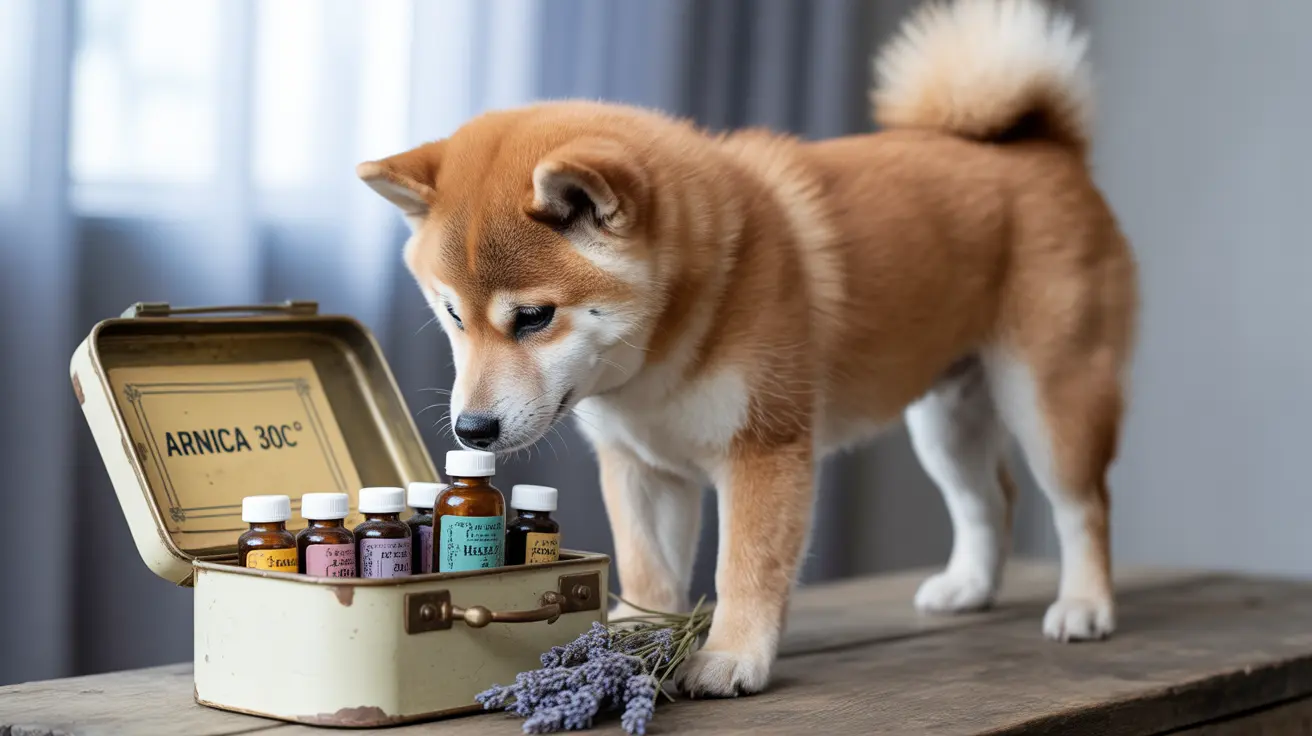Introduction
Exploring homeopathy for dogs has become increasingly popular among pet owners seeking natural alternatives for their furry companions' wellness. This comprehensive guide will walk you through the principles of canine homeopathy, essential remedies for your pet's first aid kit, and how to safely incorporate these gentle treatments into your dog's healthcare routine.
While homeopathic treatments offer a gentle approach to supporting your dog's health, it's crucial to understand both their potential benefits and limitations. Let's explore how to build and use a proper homeopathic first aid kit for your four-legged friend.
Understanding the Basics of Canine Homeopathy
Homeopathy for dogs follows the principle of "like cures like," using highly diluted substances that would typically cause similar symptoms in larger doses. These remedies undergo a specific preparation process called potentization, which practitioners believe enhances their therapeutic properties while eliminating potential toxicity.
While scientific evidence supporting homeopathy remains limited, many pet owners report positive experiences when using these treatments for minor ailments under professional guidance.
Essential Homeopathic Remedies for Your Pet's First Aid Kit
Core Remedies
Start your kit with these fundamental homeopathic remedies:
- Arnica montana: For bruising and muscle soreness
- Apis mellifica: For insect stings and swelling
- Nux vomica: For digestive issues
- Aconite: For shock and anxiety
- Rescue Remedy: For stress and emotional trauma
Supporting Remedies
Consider adding these secondary remedies:
- Calendula: For minor wounds and skin irritations
- Belladonna: For fever and inflammation
- Phosphorus: For minor bleeding
- Silicea: For splinters and foreign bodies
Safe Administration of Homeopathic Treatments
Proper administration is crucial for effectiveness. Most homeopathic remedies come in pellet form and should be given without food. Place the pellets directly in your dog's mouth or dissolve them in spring water. Avoid touching the pellets with your hands, as this can diminish their potency.
Always start with the lowest potency available (usually 6C or 30C) unless directed otherwise by a holistic veterinarian. Monitor your pet's response carefully and discontinue use if any adverse reactions occur.
Integrating Herbal Remedies Safely
While homeopathic remedies are highly diluted, herbal preparations contain active plant compounds and require extra caution. Common safe herbs for dogs include chamomile for calming, calendula for wound healing, and ginger for nausea. Always consult with a veterinarian before introducing any herbal remedies, as some can interact with medications or be toxic to pets.
Storage and Maintenance of Your Homeopathic Kit
Store your homeopathic remedies in a cool, dark place away from strong odors and electromagnetic fields. Keep them in their original containers, clearly labeled with their uses and dosing instructions. Replace remedies every 2-3 years or if they show signs of damage or contamination.
Frequently Asked Questions
How do I build a homeopathic and herbal first aid kit for my dog?
Start with basic remedies like Arnica, Apis, and Rescue Remedy. Add herbal preparations only after consulting with a holistic veterinarian. Store everything in a dedicated container away from heat and light.
What are the most common homeopathic remedies for treating minor ailments in dogs?
The most frequently used remedies include Arnica for injuries, Apis for insect stings, Nux vomica for digestive issues, and Rescue Remedy for anxiety and stress.
Can I use homeopathic remedies alongside conventional veterinary treatments for my dog?
Yes, homeopathic remedies can generally be used alongside conventional treatments. However, always inform your veterinarian about any complementary treatments you're using.
How do I safely administer homeopathic pellets or drops to my dog?
Place pellets directly in your dog's mouth or dissolve them in spring water. Avoid touching the pellets and administer away from meals for best results.
What are the potential risks or interactions of using herbal remedies with conventional medications for dogs?
Some herbs can interact with conventional medications, potentially altering their effectiveness or causing adverse reactions. Always consult with your veterinarian before combining treatments.
Conclusion
Building a homeopathic first aid kit for your dog can provide gentle support for minor health issues. While these natural remedies can be valuable tools in your pet care arsenal, remember they're not substitutes for professional veterinary care in serious situations. Always work with a qualified veterinarian to develop the most appropriate treatment plan for your pet's specific needs.






